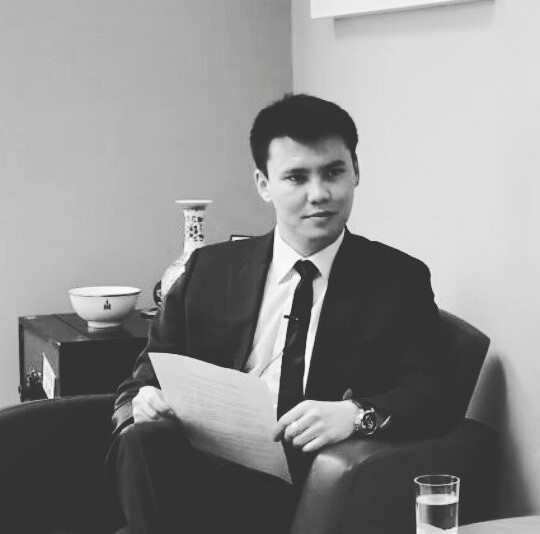 Tomorrow, June 29, Mongolia will hold the 7th parliamentary election and lately this has become the hot topic in Mongolia. This has certainly attracted international attention to Mongolia and ODIHR was invited by the government of Mongolia to observe the parliamentary elections, in line with the country`s commitments as an OSCE participating State. This is the second ODIHR election observation mission deployed to Mongolia, which became an OSCE participating State at the end of 2012.
Tomorrow, June 29, Mongolia will hold the 7th parliamentary election and lately this has become the hot topic in Mongolia. This has certainly attracted international attention to Mongolia and ODIHR was invited by the government of Mongolia to observe the parliamentary elections, in line with the country`s commitments as an OSCE participating State. This is the second ODIHR election observation mission deployed to Mongolia, which became an OSCE participating State at the end of 2012.
The OSCE Office for Democratic Institutions and Human Rights (ODHIR) opened an election observation mission in May to monitor the 29 June parliamentary elections in Mongolia.
The mission is headed by Ambassador Audrey Glover and consists of 11 international experts based in Ulaanbaatar, 14 long-term observers will be deployed throughout the regions and another 300 short-term observers (STO) to observe voting, counting and the tabulation of results. STOs will be deployed in multinational teams of two, under a deployment plan prepared by the OSCE/ODIHR EOM.
The mission will assess the parliamentary elections for compliance with OSCE commitments and other international standards and obligations for democratic elections, as well as with domestoc legislation. Observers will follow campaign activities, the work of the election administration and relevant state bodies, implementation of the legislative framework and the resolution of election disputes. As part of the observation, the mission will also monitor the media coverage of the campaign.
In the course of its observation, the mission will meet with representatives of relevant authorities and of political parties, as well as with representatives of civil society, the media and the international community. On election day, observers will monitor the opening of polling stations, voting, the counting of ballots and the tabulation of results at all levels.
A statement of preliminary findings and conclusions will be issued on the day after the elections. A final report on the observation of the entire electoral process will be published approximately two months after the completion of the election process.
Mission schedule
20 May: Opening press conference
27 May: Deployment of long-term observers
24 June: Arrival of short-term observers
25 June: Briefing of short-term observers
26-27 June: Deployment of short-term observers
28 June: Familiarization by short-term observers with areas of observation
29 June: Election day
30 June: Press conference on preliminary findings and conclusions
2 July: Departure of short-term observers
5 July: Departure of long-term observers
9 July: Departure of the core team
GoGo Mongolia will bring you more updates on related developments.
 Tomorrow, June 29, Mongolia will hold the 7th parliamentary election and lately this has become the hot topic in Mongolia. This has certainly attracted international attention to Mongolia and ODIHR was invited by the government of Mongolia to observe the parliamentary elections, in line with the country`s commitments as an OSCE participating State. This is the second ODIHR election observation mission deployed to Mongolia, which became an OSCE participating State at the end of 2012.
Tomorrow, June 29, Mongolia will hold the 7th parliamentary election and lately this has become the hot topic in Mongolia. This has certainly attracted international attention to Mongolia and ODIHR was invited by the government of Mongolia to observe the parliamentary elections, in line with the country`s commitments as an OSCE participating State. This is the second ODIHR election observation mission deployed to Mongolia, which became an OSCE participating State at the end of 2012.
The OSCE Office for Democratic Institutions and Human Rights (ODHIR) opened an election observation mission in May to monitor the 29 June parliamentary elections in Mongolia.
The mission is headed by Ambassador Audrey Glover and consists of 11 international experts based in Ulaanbaatar, 14 long-term observers will be deployed throughout the regions and another 300 short-term observers (STO) to observe voting, counting and the tabulation of results. STOs will be deployed in multinational teams of two, under a deployment plan prepared by the OSCE/ODIHR EOM.
The mission will assess the parliamentary elections for compliance with OSCE commitments and other international standards and obligations for democratic elections, as well as with domestoc legislation. Observers will follow campaign activities, the work of the election administration and relevant state bodies, implementation of the legislative framework and the resolution of election disputes. As part of the observation, the mission will also monitor the media coverage of the campaign.
In the course of its observation, the mission will meet with representatives of relevant authorities and of political parties, as well as with representatives of civil society, the media and the international community. On election day, observers will monitor the opening of polling stations, voting, the counting of ballots and the tabulation of results at all levels.
A statement of preliminary findings and conclusions will be issued on the day after the elections. A final report on the observation of the entire electoral process will be published approximately two months after the completion of the election process.
Mission schedule
20 May: Opening press conference
27 May: Deployment of long-term observers
24 June: Arrival of short-term observers
25 June: Briefing of short-term observers
26-27 June: Deployment of short-term observers
28 June: Familiarization by short-term observers with areas of observation
29 June: Election day
30 June: Press conference on preliminary findings and conclusions
2 July: Departure of short-term observers
5 July: Departure of long-term observers
9 July: Departure of the core team
GoGo Mongolia will bring you more updates on related developments.

